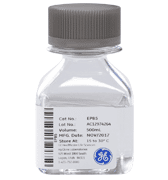MaxCyte Puts A Focus On: Douglas Swirsky CFO
CRISPR Electroporation of T Cells Improves Treatment in Patients with Refractory Cancer
MaxCyte Puts A Focus On: Douglas Swirsky, CPA, CFA, Chief Financial Officer
We are thrilled that Mr. Swirsky, a distinguished financial leader in the healthcare sector, joined MaxCyte at the end of March. With over two decades of experience, including executive roles at Nasdaq-listed organizations, Mr. Swirsky brings invaluable expertise to our team. His executive leadership positions at renowned biotechnology companies such as AavantiBio, Rexahn Pharmaceuticals, and GenVec, coupled with his extensive background in investment banking at esteemed firms like Stifel Nicolaus, Morgan Stanley, UBS, PaineWebber, and Legg Mason, make him an exceptional addition. As Chairman of the Board at Cellectar Biosciences, his strategic insights will drive MaxCyte’s continued growth. We sat with him and asked a few questions to get to know him better.
Who/what inspired you to become an accountant?
I took my first accounting course in high school and was immediately drawn to the logical nature of the field. I liked the fact that while judgement is often required, things ultimately had to balance. Debits had to equal credits, and assets had to equal the sum of liabilities and an owners’ equity. Accounting was an excellent entry point into the business world, as the disciplines of financial analysis and accounting are essential to the understanding of any enterprise.
What attracted you to work in the life sciences/biotech industry?
My exposure to life sciences and biotechnology was a happy accident! Prior to business school, I was working for an accounting and consulting firm that focused on healthcare services such as hospital systems, long-term care facilities and physician practice groups. When I left Morgan Stanley in 2000, I joined the healthcare investment banking group at PaineWebber to leverage my prior experience. However, many biotech companies were seeking capital at that time, so we concentrated almost all of our efforts toward therapeutics. This continued when UBS bought PaineWebber and I ended up working in the largest healthcare group at the time on Wall Street.
What drew you to MaxCyte?
During my banking career, I had the opportunity to work on financings for a number of companies focused on early-stage gene and cell therapy, as well as immuno-oncology. Even though investor interest has waxed and waned over the years, the biotech industry has produced many successful companies, such as MaxCyte. I was drawn to MaxCyte as it provides an opportunity to work for a company whose platform is enabling a broad range of programs in an area with which I am familiar. Additionally, MaxCyte is focused on solving big problems and supporting programs with the potential to address significant unmet medical needs for its growing list of partners and customers. The company is contributing to the field in a material way by providing its technology to advance efforts in drug discovery, development and hopefully in the near-term, commercialization.
What do you enjoy most about working here?
The culture at MaxCyte is supportive and collaborative, and I enjoy the high level of energy that resonates across all functional areas. At the office, I get to interact with passionate individuals, who like me, believe that our work can make a positive impact on the company and that we are contributing to something much larger than ourselves. I feel blessed to be working with great people including our Corporate Controller, Kelly Schelling, our VP of Finance, Jay Gelfman, and our Director of Investor Relations, Sean Menarguez.
I also enjoy the day-to-day variability. Since the CFO role is very strategic, I get to be involved in a wide variety of projects that make every day feel like its own unique adventure. I am also fervent about continuous learning and professional development and believe that every day at MaxCyte presents an opportunity to learn something new.
What are some of the responsibilities of your department?
As a public company, MaxCyte is subject to reporting requirements and must interface with the investment community to ensure that our value proposition is appreciated in the financial markets. Besides these responsibilities, my team also assists every department in the company with the development of their budgets and provides important metrics that help them manage various aspects of their operational areas. We also support groups that directly impact our customers including manufacturing, R&D, and the sales and field application teams.
What are some of the financial challenges facing biotech companies today?
The financing markets have been challenging for biotech companies. Capital that was readily available just two years ago has become much scarcer and companies are having a hard time funding the development of their pipelines. This has led to significant belt tightening as companies focus on a smaller set of promising programs. Valuations in the space peaked in February 2021 and have fallen significantly since. The IPO window all but disappeared and certain investors reduced their exposure to the sector.
However, the industry continues to innovate and there are exciting programs now that have the potential to change how certain diseases are treated. For example, CRISPR Therapeutics and Vertex are now seeking regulatory approval for their exagamglogene autotemcel (exa-cel) program. If approved, exa-cel, which leverages MaxCyte’s ExPERT™ platform, has the potential to treat transfusion-dependent beta thalassemia (TDT) and sickle cell disease (SCD).
What are you most looking forward to accomplishing at MaxCyte?
My goal is to be a thought partner with our CEO to help drive superior performance, as well as provide strategic advice to the executive team and Board of Directors. As CFO, I am focused on enhancing the company’s financial performance by implementing effective financial strategies, streamlining our financial processes and strengthening our relationships within the investment community. All that said, the most important thing for me is developing and leading a high-performing team. By fostering a culture of collaboration, accountability and continuous learning, I can ensure that the finance team is equipped to meet the company’s evolving needs.






